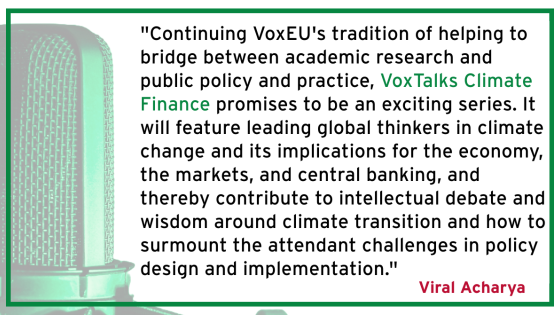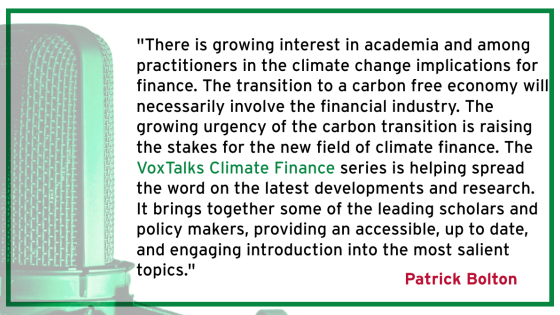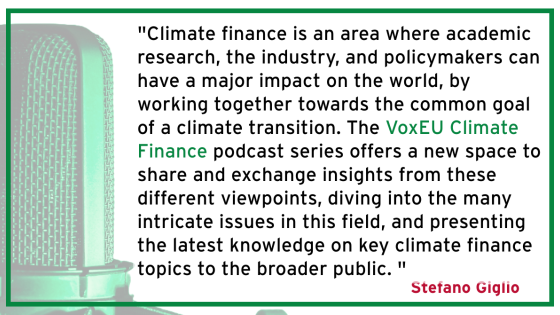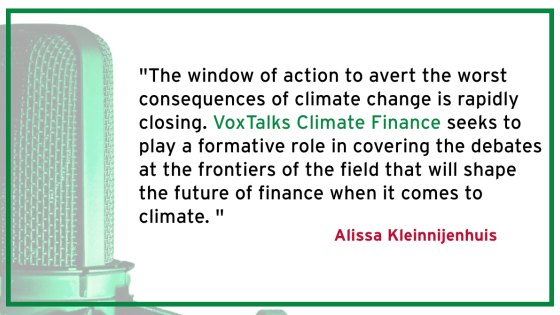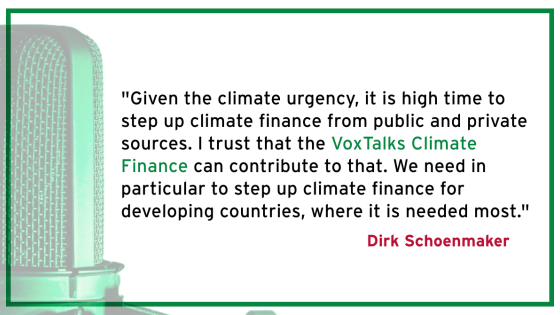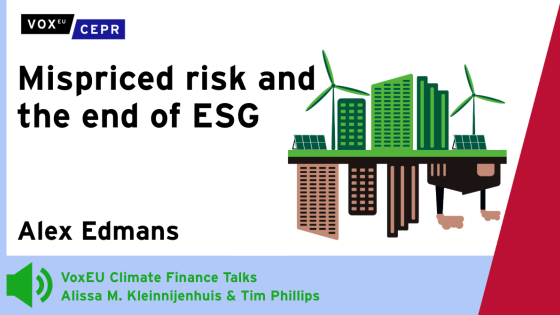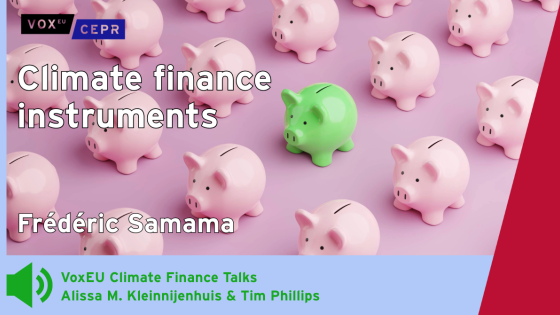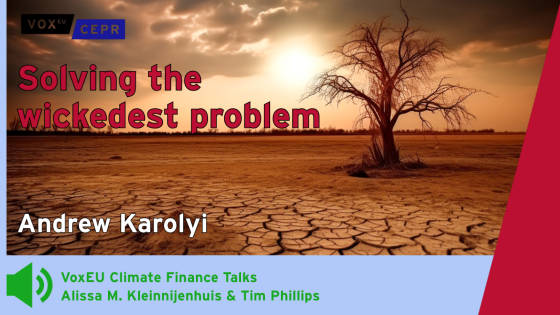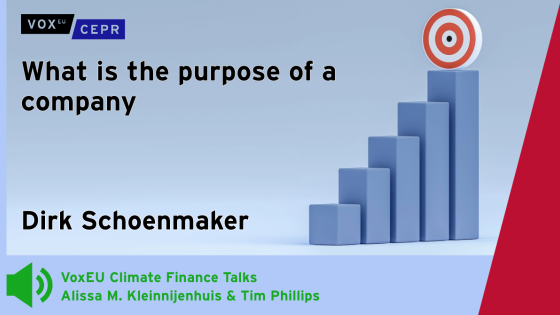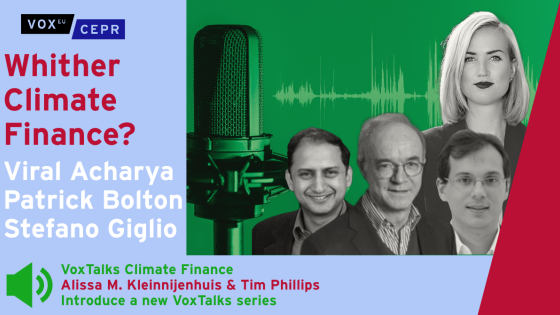

Search the site
This new series, from the highly regarded VoxTalks Podcast, showcases leading thinkers on Climate Finance. Learn about groundbreaking new research, commentary, and policy ideas from the world’s leading economists, practitioners, and policymakers at the fast-moving frontiers of climate finance.
Exploring the interplay of climate change and biodiversity risk, Alissa Kleinnijenhuis and Tim Phillips discuss with Johannes Stroebel and Caroline Flammer the potential of private capital in financing biodiversity conservation and restoration.

Global annual carbon emissions are still trending upward. For the last 65 years the emission concentration in the atmosphere has been rising, nearly linearly. In the meanwhile, we are fast running out of the remaining carbon budget (RCB) to limit the increase in global average temperature to 1.5 °C above pre-industrial levels. Deployment of current fossil fuel assets will also fast deplete the 2 °C degree budget.
Despite ambitious climate packages in Europe (The EU Green Deal) and the United States (The Inflation Reduction Act), global emissions have not even started to bend downward yet, in part because of growing emissions in emerging and developing market economies (EMDEs). The consequences of unchecked climate change are potentially catastrophic, implying large tail risks, where economies in parts of the earth may become hardly viable.
Nations have, for three decades, pursued carbon taxation as a first-best approach to climate policymaking. Done right, carbon prices equate the marginal benefits and costs of greenhouse gas emissions, and as such, internalise the carbon externality. Despite at least three decades of efforts, only 23% of global greenhouse gasses are taxed, and even those that are typically are taxed below the theoretical optimum, known as the social cost of carbon. In a world where the regulator has not regulated optimally to internalise externalities, there is a role for complementary 2nd/3rd best approaches to get to net zero in time. The financial sector is set to play a critical role in pricing and hedging climate physical and transition risks. In a world of incomplete carbon taxation, it could also play a vital complementary role in capital allocation to support low greenhouse gas emissions, adaptation, and climate-resilient sustainable development. There may be an economic case for the financial public and private sectors to step up their game.
What insights emerge from the study at the intersection of climate and finance? Particularly, what role does and could finance play in pricing climate/nature risks and aligning financing flows with a carbon-neutral and sustainable economy?
Climate finance's significant emergence and rapid growth as an academic field took off around 2020 when one of the top-3 finance journals published as special issue on the topic. In 2015, a landmark speech by the former governor of the Bank of England shook awake regulators and private capital markets globally to the realisation that climate risks could pose a material financial risk and systemic risk. In the last seven years, the incorporation of climate into policymaking and business is increasingly becoming mainstream. Nevertheless, the debates in the field of climate finance are far from settled yet. On the contrary, the recent emergence of climate finance as a mainstream academic field means that many of the big questions at the intersection of climate and finance have not been studied yet (in depth).
Episodes in VoxTalks Climate Finance will cover groundbreaking new research in academia, leading developments in public policy and private capital markets at the intersection of climate and finance, including the role that finance plays in pricing climate risks and aligning finance flows with low greenhouse gas emissions and climate-resilient sustainable development. The episodes will provide a platform for the debates that must be had to make finance integral to the sustainable climate solution.
VoxTalks Climate Finance seeks to play a formative role in covering the debates at the frontiers of the field that will shape the future of finance when it comes to climate.
